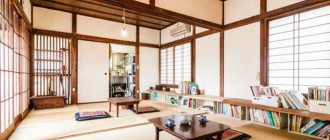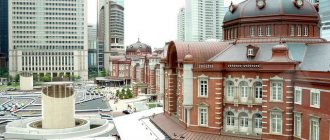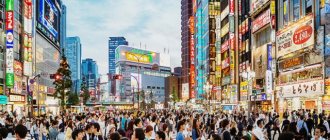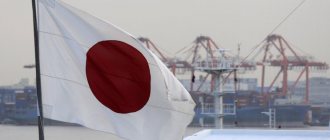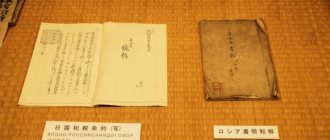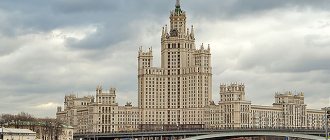Japanese real estate is one of the most expensive in the world. The high cost of square meters is due to the fact that the country is heavily overpopulated, there is a catastrophic shortage of free land for construction, and the high level of seismicity forces the construction of buildings using expensive anti-seismic technologies.
Therefore, not everyone can afford to buy real estate in Japan. However, this country occupies a leading position in the international real estate market due to its high standard of living.
How to find housing
In order to purchase real estate in the Land of the Rising Sun, you need to contact one of the real estate agencies. There are many online resources created specifically for the purpose of selling houses and apartments in Japan, which offer a wide selection of both the properties themselves and real estate agencies.
Online resources for finding housing
There are sites on the Internet that you can use to find out what a house in Japan that interests you looks like. Unfortunately, there are few such Russian-language Internet resources. There are several websites in Russian offering real estate around the world, including Japan:
- https://ru.luxuryestate.com/Japan – this site contains about 350,000 offers for the sale of real estate properties around the world. The resource is focused exclusively on luxury premises. When requesting in Russian, prices are automatically provided in rubles, but the site allows visitors to choose one of 16 languages (including English and Japanese).
- https://www.sothebysrealty.com/rus/sales/jpn. Sotheby's International Agency is another resource for choosing luxury real estate in Japan. This site contains offers for the sale of houses and apartments depending on the characteristics, style of architecture and lifestyle.
- https://www.world-real-estate.ru/yaponiya/ – the site provides a selection of premises in several foreign countries for Russian-speaking users. Here you can buy any type of real estate - from a garage to luxury apartments.
- https://www.century21global.com/ru/for-sale-residential/Japan – on the website of this international agency, corporate apartments and private single-family houses are offered for sale around the world. Moreover, both objects and real estate agencies are represented here.
If you know English, you can use the real estate search on the following resources:
- https://www.foreclosedjapan.com - the database of this portal includes apartments and houses throughout Japan. Here you can find residential properties for sale and for rent. The site also offers commercial real estate.
- https://www.realestate-tokyo.com - the site offers the sale and rental of apartments exclusively in the capital of Japan, Tokyo. Here you can find an option suitable for you depending on the price and area, as well as offers for renting commercial real estate.
How to find housing on your own
If you are interested in Japanese mini-apartments, unusual futuristic houses or office space, you can start a preliminary search for them on the Internet yourself. For this purpose, many websites have been specially developed offering the sale and rental of real estate around the world, including Japan.
However, when searching for housing on your own in the Land of the Rising Sun, there is one caveat: it is almost impossible to find an offer for the sale of apartments directly from the owner.
Typically, the Japanese prefer to deal with potential buyers through real estate agencies to avoid problems when drawing up a contract, especially if the potential buyer is a foreigner. Therefore, having selected an offer that interests you on one of the sites, you can contact agency representatives to first discuss the details of the upcoming transaction.
Search through a real estate agency
In order to purchase real estate in Japan, it is advisable to contact one of the relevant agencies. The fact is that the process of buying real estate in Japan has many nuances, which will not be easy for a foreigner to understand without the help of specialists. In addition, drawing up a home purchase agreement in Japanese requires special scrupulousness. Therefore, the procedure for purchasing real estate in Japan is impossible without the participation of a realtor, lawyer, notary and translator. The agent will introduce the buyer to current market offers, taking into account the client’s wishes. Having chosen the most suitable option, you should pay an advance, sign an agreement, and then pay the remaining amount, after which you need to register the purchased home in the name of the buyer.
Homeowners
Due to the high cost of housing in major cities, many families and individuals rent apartments rather than own their own home. In 2003, less than half of the housing units in Tokyo were owned by citizens. On the other hand, rural areas have higher home ownership rates. The highest rate in the country belongs to Toyama Prefecture, where about 80% of housing is owned by direct residents.
It is clear that the living space in houses and condominiums (also called simply mansions in Japan) is much larger than in apartments. The average size of such area for owners is 121.7 m2 and varies depending on the location of the housing. In Tokyo, for example, this figure will be about 91 m2, and in Toyama Prefecture - 178.4 m2.
The area of houses for sale or rent is usually indicated in the traditional Japanese manner, i.e. in tsubo (tsubo, 坪) , which is equal to approximately two tatami (3.3 m2).
In recent years, condominiums and guest houses have become more and more popular. Compared to 1983, when 64% of homes were single-family occupied and only 27% were condominiums, the latter category has now increased significantly and now accounts for 40%.
When the house wears out, the owner replaces it. The general practice is this: a new house is built in the same place, and during construction the residents are moved to temporary housing. The contractor demolishes the old building and erects a new one in the same place, after which the previous residents return. Without moving, they enjoy the convenience of owning a home, the same address, telephone and utility bills. Because of the wooden structure and relatively short lifespan of Japanese houses, it is considered cheaper to demolish the old one and build a new one rather than try to maintain the old structure.
Features of the real estate market
The Japanese real estate market is one of the most expensive in the world. High prices are primarily due to the lack of land for new buildings. Therefore, Japanese houses can hardly be called spacious. Small apartments may seem insufficiently comfortable to potential buyers, but this is not the case - even the smallest apartments in Japan have all the necessary amenities.
Primary market
The sale of apartments in new buildings that have not yet been put into operation begins with showrooms. At the office of the developer, the potential buyer is shown a short film about the housing complex, after which they are taken to a room that completely replicates the layout of the apartment. It is interesting that in such show apartments the developers repeat everything down to the smallest detail, with the exception of furniture, which is usually not included in the price of the apartment. The office can also learn about how houses in Japan are built to protect them from damage in the event of an earthquake. For this purpose, mini-models of buildings with water are used, which clearly show how the depreciation system of a house works.
Secondary market
Resale housing in Japan can cost significantly less than apartments in a new building. For example, the Japanese will never buy an apartment if a suicide has previously been committed in it. Japanese laws prohibit agents from hiding such information, therefore, having learned about this fact, any Japanese will refuse even the best offer, and a foreigner will have a chance to purchase a secondary home at half the original cost.
Private houses
Traditional houses in Japan are usually made of wood. However, modern villas are not designed according to established traditions. Japan is known for its non-standard architectural solutions - in the Land of the Rising Sun there are quite a lot of strangely shaped houses. Designing intricate structures is driven primarily by the high cost of square footage, so Japanese architects are forced to come up with all sorts of unusual ways to make the most of available space. Thus, the first floor of some houses in Japan can have an area of only 16 square meters, while they have four floors, and the height of the building is 9 meters.
Retail real estate
Japan is among the TOP 10 leading international real estate markets. This is one of the five leading countries in the world in terms of the number of investments in commercial real estate per year, which is the most promising for investment, and the first, along with China, in the Asia-Pacific region. The annual turnover in the commercial sector averages about 35 billion US dollars. The most popular investments are in office space with a high rate of return.
Rent in houses and apartments
To rent an apartment in Japan, potential tenants visit real estate agents located in each area and review an apartment directory, which typically lists the apartment's layout and rental price. If the tenant is interested in a particular apartment, the agent contacts the landlord to see if the apartment is still available for rent and when he can visit it. As a rule, a tenant cannot rent an apartment directly, but he must have a guarantor who will undertake to pay the rent if any problems arise.
Traditionally, Japanese landlords charge a damage fee and security deposit before a tenant moves in, followed by a monthly service fee. The deposit, as a rule, is not returned by the landlord.
In large cities such as Tokyo and Osaka, the deposit can be the equivalent of six months' rent. In recent years, many homeowners have begun to require a deposit of lesser value or no deposit at all. In these cases, the monthly rent is slightly higher compared to traditional rentals and in these boarding house apartments, the owners can offer linear service to the tenants.
In Tokyo, a one-year lease is typical. Each year, this agreement is renewed and the tenant pays the landlord one additional month of rent as a fee. In many other cities, the annual lease term is a minimum, and the rent itself remains the same for many years.
Guest houses
Foreigners in Japan who rent their own homes often face discrimination from landlords and real estate agents who refuse to rent to foreigners. Some agents tell foreigners directly that it will be difficult for them to rent an apartment. Finding a guarantor for foreigners is also a difficult task.
Guest houses, also called gaijin houses, come in a variety of shapes and sizes and are designed for short-term stays at a reasonable cost and with a minimum of hassle. These houses are generally aimed at foreign residents, but recently they have become increasingly popular among Japanese youth who are keen to break with the tradition of living with their parents after marriage.
In these houses, the rent is quite low, plus you do not need to pay a deposit when signing a lease. In such a house, each resident is provided with a separate room, but the kitchen and bathroom are shared. Amenities and washing machines usually come at a cost, but due to intense competition, many landlords are keen to provide their residents with as many free extras as possible, particularly in Tokyo this includes free internet.
Real estate in megacities
Japan includes many large and small islands, each of which has its own characteristics. The main administrative center of the country is the island of Honshu, on which the largest, economically developed cities are located. Tokyo, Osaka, Kyoto, Yokohama and Nagoya are important industrial and business centers, so this is where most immigrants seek employment.
Real estate in Tokyo
Tokyo is the capital of Japan. This is a huge metropolis located in the east of the island of Honshu. Each district of the capital has a special situation, so it seems as if each zone is a separate settlement. The city amazes with neon lighting at night and an abundance of diversity in architecture. Old buildings have been preserved here, embodying traditional Japanese culture, but not particularly chic. Nevertheless, residential buildings built after the war are attractive for their practicality and compactness. Next to them, closer to the city center, rise huge skyscrapers housing numerous offices and hotels. Due to the lack of free space in the city, active construction is underway underground.
The cost of one “square” of residential real estate in the central part of the city averages $10,000-20,000, in residential areas – $8,000-14,000. The most common square footage of a metropolitan apartment is 60-65 m² with a price starting from $480,000.
The amount is not small, so foreigners working in this city buy houses with an area of 100-120 m² with a small garden plot, remote from the center of the capital. Their cost is from $600,000.
Property in Kyoto
The city of Kyoto can rightfully be called one of the most beautiful in Japan. It was once the capital of the state. Kyoto is located in the central part of the island of Honshu. This is the cultural center of the country, in which the Japanese authorities are trying to preserve the historical atmosphere as much as possible. Therefore, here you can find ancient streets that have been preserved since the Middle Ages, and traditional wooden Japanese houses. And although many tourists come here primarily for the exotic, it should be noted that there are also modern residential buildings in Japan in the city of Kyoto, and in considerable quantities.
Property in Osaka
The city of Osaka is located in the south of the island of Honshu and is washed by the Sea of Japan. Osaka is considered the commercial capital of Japan. There are many different business centers here, so most of the real estate is commercial. In addition to foreign investors intending to invest their money in commercial real estate, many immigrants are also heading to this city. It is no coincidence that Osaka is the most popular city for immigration after Tokyo. The average cost per square meter of housing here is $6,000-7,000. Real estate on the secondary market is more affordable - there the cost per square meter is at $3,000.
Property in Yokohama
The city of Yokohama is located on the western shore of Tokyo Bay, 40 kilometers from Tokyo. Home to Japan's largest port, Yokohama's economy is based on maritime transportation. In addition to shipping, the city has a developed biotechnology industry, as well as semiconductor manufacturing. This city has a large number of high-rise buildings and entertainment complexes. Apartment with an area of about 70 sq. m can be purchased at a price of $300,000. The average cost per square meter of housing here is $6,000-$7,000.
Real estate in Nagoya
The city of Nagoya is located between the old and new capitals of Japan - Kyoto and Tokyo. The city is very attractive for immigrants primarily due to the many universities located here, which receive a large number of students from abroad every year. Most international students cannot afford an apartment in Nagoya, so almost all universities offer them student dormitories. The cost of living in a dormitory for the year ranges from approximately 1,000 to 2,000 US dollars, depending on its location and conditions.
Purchasing process
Regardless of whether you want to buy an expensive, ultra-modern apartment in the city or buy an inexpensive house in the countryside in Japan, the process of purchasing a home is the same everywhere and takes place in several stages:
- contacting a real estate agency;
- choosing a suitable object;
- advance payment;
- signing an agreement, which must be attended by the seller, the buyer, representatives of the real estate agency from both parties and a notary;
- payment of the remaining amount;
- re-registration of real estate to a new owner.
Accompanying documents
If you have the full amount to purchase housing in Japan, then you only need to have a passport to complete the transaction.
Japanese law does not impose any special requirements for purchasing housing if there is enough money to pay. A residence permit or guarantee from a Japanese citizen is required only if the buyer does not have the required amount at the time of purchase and intends to take out a mortgage loan.
Please note that when preparing documents for an apartment or house, you will have to incur additional costs for the following services:
Property value
The most popular size of a Japanese apartment is 65 square meters. m. Such apartments will cost the buyer approximately ¥52,000,000 ($480,000). Therefore, you should not be surprised at how much a private house in Japan costs in rubles: if you consider that a country house with an area of 120 square meters. m costs about 65,505,000 ¥ ($600,000), then in Russian currency the cost of the house is 34,000,000 rubles.
Buying houses further away from the city center is much more profitable. In addition, when purchasing a mansion in Japan, it is not at all necessary to buy the land on which it stands - you can simply rent it for 50 years.
Housing prices in Japan are quite high. This is due to two main factors:
- overcrowding and lack of available land for the construction of new facilities;
- the use of expensive shock absorption technologies, which are used to protect buildings from damage during possible earthquakes.
The table below shows the average cost of an apartment in Japan in yen and US dollars in the largest cities in Japan (prices are per 1 sq. m):
| City | Cost in Japanese yen | Cost in US dollars |
| Tokyo | central region – 1,700,000; sleeping – 1,200,000 | central region - 15,000; sleeping – 11,000 |
| Kyoto | 655 000 | 6 000 |
| Osaka | 680 000 | 6 250 |
| Yokohama | 710 000 | 6 500 |
| Nagoya | 655 000 | 6 000 |
When planning to purchase real estate in Japan, you must remember that in addition to the apartment itself, you will have to pay some taxes and fees, which amount to approximately 8-10% of the purchase price.
Cost of residential premises in different cities in 2021
Buying real estate in Japan is an extremely expensive business. It is doubly difficult for foreigners, since they are poorly versed in the local market and simply do not know, for example, how much an apartment in Tokyo costs. As a result, you can make a mistake and choose an object at an inflated price.
If the buyer is interested in an area with good transport accessibility and, as the advertisement assures, “an excellent view from the window,” then such a three-room apartment with a total area of 76 sq.m. (a hall of 19.9 sq.m., and two bedrooms: 15.4 sq.m. and 16.9 sq.m.) will cost approximately $700 thousand.
Studio with a total area of 16 sq.m. will cost about 100 thousand dollars. In the capital, such housing is in demand among students and single citizens. Townhouse with a garage, but without a garden or patio, with an area of 123 sq.m. will cost $1.5 million. An ordinary “budget” house is 100-130 sq.m. in the near suburbs near the train station costs approximately 600 thousand dollars.
Despite the variety of purchasing options, no one can say exactly how much housing costs in Japan. The location of the property and other factors have a significant influence. Judging by the average price per square meter of an apartment in Tokyo, then as of 2021 it reaches $7,000.
In Japan's second largest city, Osaka, residential property prices are not much lower. The average cost per square meter there is $5,000-6,000. The situation is approximately the same in Yokohama and Kobe.
Rent
You can rent an apartment in Japan at different prices, starting from $300 for a studio with an area of 12 sq.m. and ending with multi-room apartments costing 5-7 thousand dollars per month and above. As a rule, the tenant independently looks for suitable housing on specialized websites or through an agency.
If a foreigner comes to Tokyo to work or study, then he should be guided by the cost of rent, starting from $1,500 per month. For this price you can find a small two-room apartment with an area of 50-60 sq.m.
Mortgage
A mortgage is the best option for purchasing housing in Japan. Almost every resident has the right to take advantage of this opportunity, however, there are certain restrictions for foreigners:
- residence in the country for at least the last 5 years;
- availability of a residence permit;
- good level of knowledge of Japanese;
- having a family living in the country or being married to a Japanese citizen;
- working experience in a Japanese company for at least 5 years;
- good reasons for long-term residence in the country.
Conditions for obtaining a mortgage loan:
- advance payment of 10% of the value of real estate;
- the buyer must have a guarantor in the person of a Japanese citizen;
- annual interest rate is 2%;
- the loan must be repaid over 50 years or, in the case of a 100-year mortgage, it must be paid by the buyer's heirs.
How to choose a bank for a loan
The basis of the Japanese banking system is made up of nationwide banks. The combined size of their assets is equal to 80% of the capital of the entire banking system. Nationwide banks include trust banks, long-term credit banks, city and regional banks, and second-tier regional banks.
City banks are the most suitable for mortgage lending, since regional banks lag behind them in terms of operations and capital.
Regional second-tier banks have an even smaller amount of capital, so they are mostly focused on individuals and small companies.
Required documents for a loan
In order to apply for a mortgage loan in one of the Japanese banks, you need to prepare a number of basic documents:
- passport;
- a document about your credit history;
- income certificate;
- income certificate in the form of a bank.
Conditions for obtaining a loan
Despite the fact that the cost of real estate in Japan is extremely high, buyers here have access to very cheap loans. As a result, this makes mortgages more profitable than in Russia or other CIS countries.
To purchase an apartment or house, a down payment of 10 to 20% is required. The average fixed mortgage rate in Japan is 1.68%. The loan can be taken out for up to 50 years. In the event of the borrower's death, the remaining amount will be repaid by his heirs.
Mortgages for foreigners are available with some restrictions. The most important among them is the requirement to have a residence permit. In addition, the bank will check where the potential borrower works and the amount of his permanent income. If the foreigner is a non-resident, then lending is also available, but on less favorable terms. The apartment itself will be under encumbrance until the end of the loan payments.
Which bank should you prefer?
The buyer of real estate has the right to independently choose where to apply for a mortgage loan. Some restrictions may be associated only with the primary market, since some developers work only with the bank that finances the construction.
If we are talking about the secondary market, then the buyer should focus only on the lending conditions. The largest mortgage banks in Japan are Sumitomo, Mimuho, Resona Holdings, Bank of Yokohama, Bank of Tokyo-Mitsubishi UFJ, Fukuoka Financial Group.
Preparation of documents
Applying for a mortgage loan significantly complicates the process of purchasing real estate. The buyer must provide a significant package of documents. It includes:
- international passport;
- residence permit (if available);
- information about income received in Japan;
- certificate from the place of work.
Bank employees find out information about the borrower’s credit history on their own.
Taxation of Japanese real estate
When purchasing real estate, both local residents and foreigners are required to pay tax at a rate of 1.4% of the purchase price. Real estate valuation in Japan is carried out by the local government and must be recorded in a special report. In addition, the city government retains an additional 0.3% of the property value, which is subsequently used for urban design and development. Another 0.4% will need to be paid if you purchase an apartment in a new building.
Advantages of purchasing a home in Japan
Real estate in the Land of the Rising Sun is in great demand among foreigners. Among the main advantages of buying a home in Japan is government support for the construction market. Construction in the country is developing successfully thanks to the active use of various technological innovations, which allows Japan to occupy one of the leading positions in the global real estate market. Purchasing Japanese real estate can be a profitable investment, especially if you pay attention to the commercial sector. In addition, getting a loan from a Japanese bank to buy a home is not difficult, and the interest rate is relatively small.
However, in addition to the advantages, there are also some negative aspects associated with the purchase of real estate in the Land of the Rising Sun. First of all, real estate in Japan is unprofitable for foreigners because this island state has very high seismicity - this country ranks first in the world in terms of the number of earthquakes. But despite the very unfavorable living conditions, the Japanese manage to build earthquake-resistant houses, which minimize the risk of damage as a result of a natural disaster.
Variability
We try to work with different housing agencies in each city where we have partner schools. This means we offer options that are within a reasonable distance of where you will be studying. Moreover, since we act as an intermediary, you don't have to worry about your Japanese language skills just yet. We can provide great deals and discounts , as well as flexible contracts, both short and long term, so you can find the option that best suits your needs. With options ranging from all-female dorms to private apartments, some furnished and some unfurnished, you're sure to be able to find accommodation to your liking.
